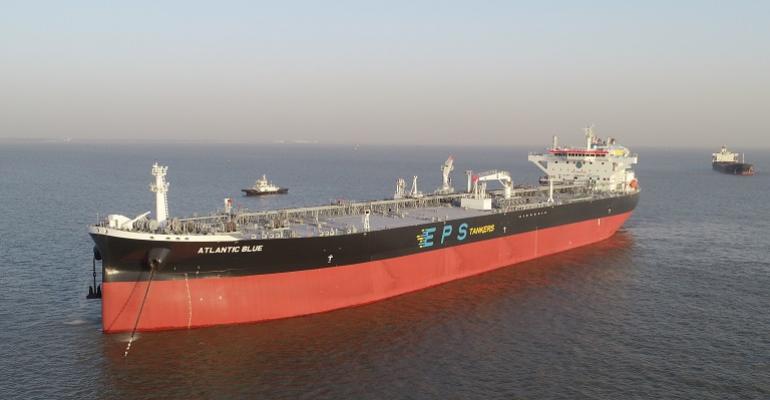The three companies have signed a Memorandum of Understanding (MoU) to create a partnership that aims to develop methanol and ammonia as marine fuels for both retrofitted engines and newbuildings.
Under the partnership existing vessels from EPS’s fleet will be selected to be retrofitted with MAN engines designed to run on methanol and ammonia, with the fuel supplied by OCI. The first retrofitted vessel would also be chartered by OCI.
In addition EPS would order newbuildings to be fitted with MAN engines which would burn the same fuel types.
EPS ceo, Cyril Ducau, commented: “As a leading tonnage provider, EPS has taken a firm stance that sustainability begins with accountability. This means we have a responsibility to implement emission lowering solutions available today while simultaneously developing solutions for tomorrow.”
At present a small number of vessels in the global fleet are already using methanol as a marine fuel, while ammonia is increasingly seen as a viable future option, although it still requires significant research and development work to be scalable solution for marine propulsion. MAN has had methanol engines in service for two years already.
Brian Østergaard Sørensen, Vice President and Head of R&D, Two-Stroke Business at MAN, said, “Methanol and ammonia are very Interesting candidates as zero-carbon fuels. In fact, we have already introduced a methanol-burning two-stroke engine, while we expect to deliver the first ammonia-fueled engine in 2024.”
Ducau added: “Converting our existing conventional fleet to burn methanol creates a unique opportunity to continue lowering our carbon footprint significantly and rapidly. In the meantime, developing ammonia-fuelled conversion and newbuilding projects will help develop more mature zero-carbon solutions in the longer-term.”
Looking to the fuel supply side the equation Ahmed El-Hoshy, ceo of OCI said, “The use of ammonia or methanol as a shipping fuel is particularly promising as these products are among the best-placed alternatives to help this sector decarbonize in a cost-effective way.
“We are confident that, in addition to the exciting developments on newbuilds, existing vessels can economically convert their engines to use our low-carbon products and help the industry meet its goals. We see this as starting with the adoption of grey/blue methanol and ammonia and then shifting to green as production costs come down, customer appetites move towards green and regulations continue to develop.”
EPS remains open to exploring other practical and realistic ways to meet decarbonisation goals describing its approach as “agnostic”.
Copyright © 2024. All rights reserved. Seatrade, a trading name of Informa Markets (UK) Limited.
Add Seatrade Maritime News to your Google News feed.  |

